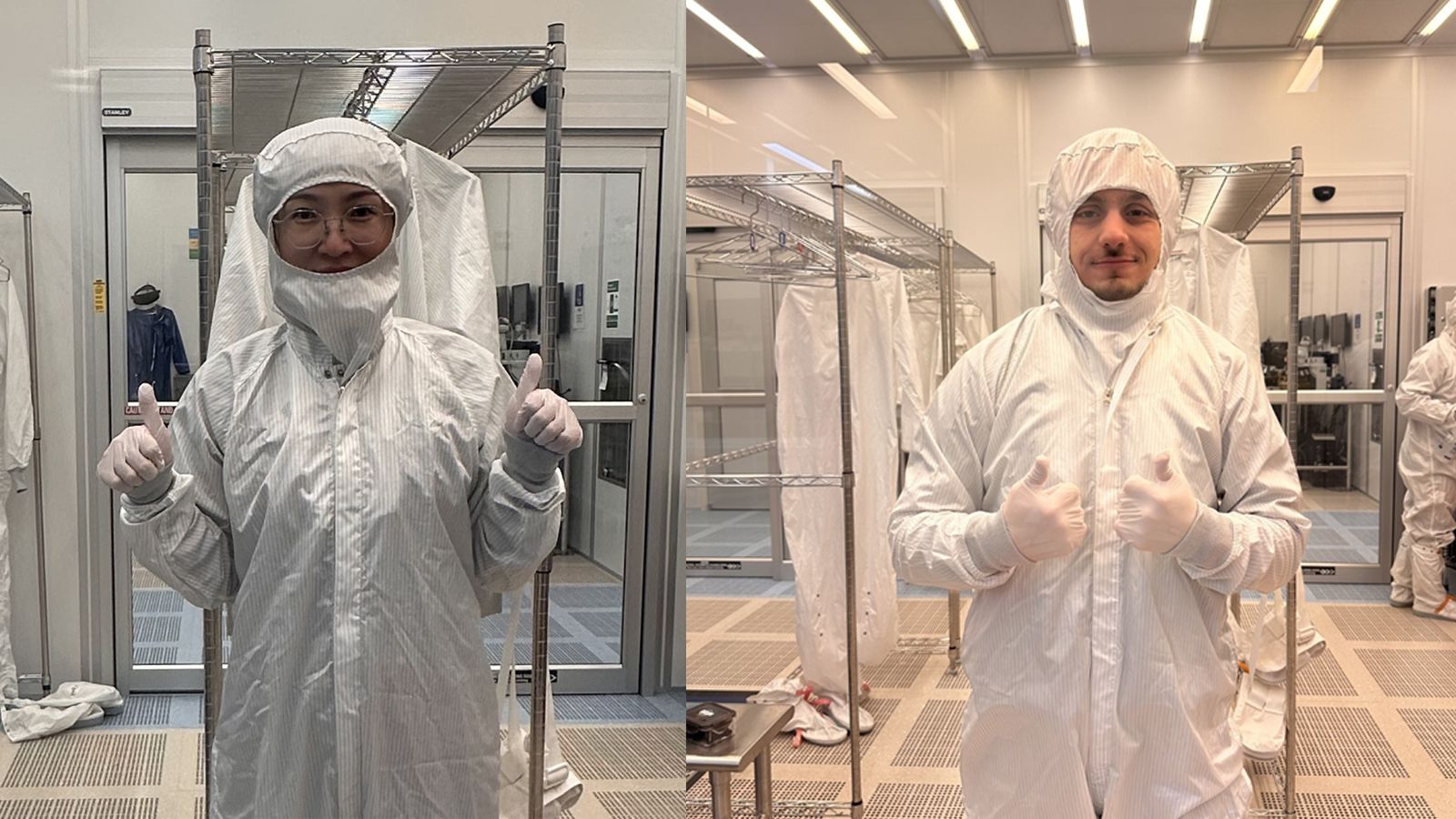Their research is rocking the universe!
Two Hunter College physics undergraduates, Ting He and Matthew Wilson (MHC), won the Best Poster Award at the CUNY Advance Science Research Center Nanofab Research Showcase Symposium in October.
Their project outlined the general steps of topological quantum computation -- a theoretical way of measuring the universe by gauging the topological qualities of matter -- and reviewed recent progress and challenges in condensing matter for such measurement.
On top of that, the CUNY Transformation Initiative Fund announced in December that it would support the students’ research, which seeks to produce topological qubits that are more resistant to errors and noise, making them more reliable for processing and storing quantum information.
The students’ work contributes valuable scientific insights and opens doors for TQC research, which is on the cusp of building a scalable and fault-tolerant quantum computer.
“For Hunter College, the achievement underscores the strength of its undergraduate research program and the college’s commitment to fostering innovation and excellence in STEM fields,” said the students’ adviser, Adjunct Assistant Professor of Physics and Astronomy Bo Gao. “It highlights our students’ ability to compete at a high level and reinforces Hunter College’s reputation as a hub of advanced scientific exploration.”
The students’ research is only the latest kudo for quantum computing at Hunter. Earlier this year, Physics and Astronomy Professor Yuhang Ren was awarded a three-year, $800,000 grant by the National Science Foundation to further quantum information science and engineering.
The grant funds a project to enable control of electron spins and their long-distance interactions (over many interatomic spacings) using a spin pattern called persistent spin helix. This pattern, created and controlled by applying an electric field in ultra-thin oxide layers, offers a new way to link distant spin qubits for quantum computing.


